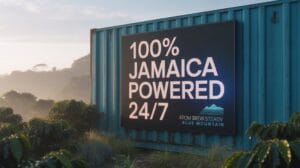When trade officials sip Jamaica’s Blue Mountain coffee, they’re drinking the product of nuclear science. Gamma rays from the island’s only research reactor are helping farmers fight a deadly fungus that’s wiped out one-third of Jamaica’s Arabica plants since 2012. Scientists call the process “nuclear irrigation” because it showers tiny seeds with energy instead of water, sparking helpful DNA changes that create tougher crops.
This work is run by the International Centre for Environmental and Nuclear Science, the sole nuclear lab in the Caribbean, and it’s pushing coffee sustainability by cutting the need for chemical sprays.
The fungus, coffee leaf rust, turns healthy green leaves into brown dust, slashing harvests and earnings. To fight back, ICENS places coffee seeds inside the reactor’s gamma irradiator. The rays cause random but often useful mutations. Plants grown from these seeds now show stronger shields against rust, other fungi, bacteria, and even insects. Some new plants also ripen their berries faster, letting farmers pick more often and keep export volumes steady. IAEA training workshops have been launched so local scientists can master the screening techniques needed to identify the hardiest new coffee lines.
Gamma rays zap seeds, birthing rugged Blue Mountain plants that laugh at rust, ripen fast, and lock in island exports.
Jamaica’s nuclear reactor, built with help from the University of the West Indies and the Scientific Research Council, sits on the Mona campus and runs quietly around the clock. It also keeps the power grid stable for coffee work after harvest.
Drying beans, sorting machines, and vacuum packing all need steady electricity, and the reactor’s steady supply keeps quality high and costs low.
Beyond coffee, the same gamma rays tackle threats to crops like cocoa, bananas, and peppers. Fewer plant diseases mean fewer toxic molds in food, which protects public health. Farmers save money on pesticides, and buyers overseas get cleaner beans. The sterile insect technique is now being explored at ICENS to suppress mosquito populations that threaten workers and nearby communities.
Exports of Blue Mountain coffee earn Jamaica tens of millions of dollars each year. The nuclear program guards this income by helping plants survive rust and future pests.
As global markets demand proof of green farming, Jamaica’s nuclear science quietly delivers it, one gamma ray at a time.


